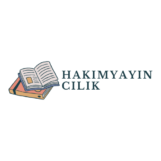I’ve discovered that learning technical writing online has become increasingly essential in today’s digital workplace. As a professional who’s spent years teaching technical writing, I can confidently say that virtual courses offer unmatched flexibility and accessibility for aspiring technical writers.
Whether you’re a beginner looking to break into the field or a seasoned professional aiming to sharpen your skills, online technical writing courses provide comprehensive training from the comfort of your home. These courses cover everything from documentation basics and UX writing to API documentation and DITA – all while fitting into your busy schedule. The best part? You’ll gain practical experience through real-world projects and receive feedback from industry experts who understand what employers are looking for.
Key Takeaways
- technical writing course online offer unmatched flexibility with 24/7 access, self-paced learning, and cost-effective professional development compared to traditional courses
- Essential skills covered include documentation standards, style guide implementation, audience analysis, and proficiency in industry-standard tools like SharePoint, MadCap Flare, and Oxygen XML
- Leading platforms offer university-based certificates and industry-recognized certifications from organizations like STC, Technical Writer HQ, and Google Technical Writing
- The field provides diverse career opportunities across technology, healthcare, manufacturing, finance, and aerospace sectors, with roles ranging from Documentation Specialists to Content Design Managers
- Technical writing certification can significantly impact earning potential, with salaries ranging from $55,000 for entry-level positions to $150,000 for leadership roles in high-paying industries
Technical Writing Course Online
Online technical writing courses blend professional development with digital convenience, creating a robust learning ecosystem for aspiring technical writers. Here’s how these courses deliver value through key advantages:
Flexibility and Self-Paced Learning
Online technical writing programs accommodate diverse schedules through 24/7 access to course materials. I’ve observed students completing modules during lunch breaks, early mornings or weekends while maintaining full-time jobs. The platform features include:
- Downloadable resources for offline study sessions
- Pre-recorded video lectures viewable at any speed
- Progress tracking tools to monitor completion rates
- Customizable learning paths based on skill level
- Mobile-friendly interfaces for on-the-go learning
Cost-Effective Professional Development
Online technical writing courses reduce traditional training expenses through digital delivery methods. A comparative analysis shows significant savings:
| Expense Category | Traditional Course | Online Course |
|---|---|---|
| Course Fees | $2,500-5,000 | $300-1,200 |
| Travel Costs | $500-1,000 | $0 |
| Materials | $200-400 | $0-50 |
| Time Off Work | 3-5 days | 0 days |
- Lifetime access to updated course materials
- Free technical writing tools included with enrollment
- Group discount options for corporate teams
- Payment plan flexibility
- Certification costs included in course fees
Essential Skills Covered in Technical Writing Programs
Technical writing programs emphasize core competencies essential for creating effective documentation in professional settings. These skills form the foundation of successful technical communication across industries.
Documentation and Style Guides
Technical writing courses teach standardized documentation practices using industry-recognized style guides like Microsoft Manual of Style, Chicago Manual of Style or Google Developer Documentation Style Guide. I focus on teaching specific elements including:
- Creating consistent formatting templates for different document types (user manuals, white papers, API docs)
- Applying proper heading hierarchies based on information architecture principles
- Writing clear procedural instructions with numbered steps
- Using appropriate terminology glossaries to maintain consistency
- Implementing style guide rules for punctuation, capitalization, and terminology
- Conducting user research through surveys, interviews, and analytics
- Creating detailed audience personas with specific characteristics
- Analyzing reading levels using tools like Flesch-Kincaid
- Structuring information based on user tasks and goals
- Writing scannable content with descriptive headings
- Incorporating visuals to support different learning styles
- Testing documentation usability with target audience members
| Audience Analysis Components | Focus Areas |
|---|---|
| User Research Methods | Surveys, Interviews, Analytics |
| Content Organization | Task-based, Goal-oriented |
| Readability Metrics | Reading Level, Scan Pattern |
| Visual Elements | Screenshots, Diagrams, Icons |
Top Technical Writing Course Platforms
Leading technical writing course platforms offer specialized training programs through established educational institutions, professional organizations, and industry experts.
University-Based Certificate Programs
University-based technical writing course online certificates provide academically rigorous coursework from accredited institutions. Popular programs include:
- UC Berkeley Extension’s Professional Sequence in Technical Communication
- Oregon State University’s Technical Writing Certificate
- University of Washington’s Professional Technical Writing Certificate
- MIT’s Technical Writing and Communication Certificate
- Georgia Tech’s Professional Communication Certificate
These programs integrate:
- Academic writing standards
- Research methodologies
- Industry-specific documentation practices
- Peer review workshops
- Faculty mentorship opportunities
Industry-Recognized Certifications
Professional certification programs offer practical skills aligned with current industry demands:
Society for Technical Communication (STC):
| Certification Level | Duration | Focus Areas |
|---|---|---|
| Foundation | 6 months | Documentation basics, Tools |
| Practitioner | 12 months | Advanced documentation, Project management |
| Expert | 18 months | Leadership, Strategy development |
Technical Writer HQ:
- API documentation specialization
- UX writing certification
- DITA fundamentals
- Software documentation mastery
- Medical writing certification
Google Technical Writing:
- Technical Writing One (fundamentals)
- Technical Writing Two (advanced concepts)
- Documentation testing methods
- Style guide implementation
- Peer review processes
- Hands-on projects
- Industry-standard tools training
- Professional portfolio development
- Networking opportunities
- Placement assistance
Tools and Software Training
Technical writing courses include comprehensive training in industry-standard software tools essential for modern documentation workflows. The training focuses on practical applications through hands-on exercises using professional-grade tools.
Document Management Systems
Document management systems form the backbone of efficient technical documentation processes. Popular platforms like SharePoint, Confluence, and Documentum enable version control, collaborative editing, and seamless content organization. These systems integrate features for:
- Access control with role-based permissions
- Automated workflows for document approvals
- Version tracking with detailed revision histories
- Content organization through metadata tagging
- Real-time collaboration tools with commenting features
- Adobe FrameMaker for structured document creation
- MadCap Flare for single-sourcing documentation
- Oxygen XML Editor for DITA implementation
- Snagit for screen capture documentation
- Camtasia for video tutorials creation
| Tool Category | Popular Software | Key Features |
|---|---|---|
| Document Management | SharePoint | Version control, collaboration |
| Help Authoring | MadCap Flare | Topic-based authoring, multi-channel publishing |
| XML Editing | Oxygen XML | DITA support, validation tools |
| Visual Documentation | Snagit | Screen capture, image editing |
| Video Creation | Camtasia | Screen recording, video editing |
Career Opportunities After Certification
Technical writing course online certification opens diverse career paths across multiple industries, with a projected 12% growth rate through 2030 according to the U.S. Bureau of Labor Statistics. The demand for certified technical writers continues to surge as companies prioritize clear documentation for products, services, and internal processes.
Industry Demand and Job Roles
Certified technical writers find employment opportunities in these key sectors:
- Technology: Software documentation, API guides, release notes
- Healthcare: Medical device manuals, clinical documentation, patient education materials
- Manufacturing: Product specifications, assembly instructions, maintenance guides
- Finance: Policy documents, compliance procedures, user manuals
- Aerospace: Engineering specifications, safety protocols, maintenance documentation
Common job titles for certified technical writers include:
- Technical Documentation Specialist
- API Documentation Writer
- UX Writer
- Information Developer
- Content Design Manager
- Documentation Team Lead
Salary Potential
Technical writing certification directly impacts earning potential across experience levels:
| Experience Level | Annual Salary Range (USD) | Additional Benefits |
|---|---|---|
| Entry Level | $55,000 – $70,000 | Remote work options, health benefits |
| Mid-Career | $70,000 – $95,000 | Stock options, flexible schedules |
| Senior Level | $95,000 – $130,000 | Leadership roles, project bonuses |
| Lead/Manager | $120,000 – $150,000 | Equity packages, executive benefits |
- Software Development ($105,000)
- Biotechnology ($98,000)
- Financial Services ($92,000)
- Aerospace ($90,000)
- Healthcare Technology ($88,000)
Online Course
Taking a technical writing course online is one of the best investments you can make in your professional development. I’ve seen firsthand how these programs transform aspiring writers into skilled documentation specialists through comprehensive training flexibility and industry-recognized certifications.
Whether you’re starting your journey or advancing your career the digital landscape offers endless opportunities. With strong job prospects competitive salaries and increasing demand across multiple industries there’s never been a better time to pursue technical writing course online.
I strongly recommend exploring the various course options I’ve discussed to find the perfect fit for your goals and schedule. Your path to becoming a successful technical writer starts with that first step – choosing the right online course.

